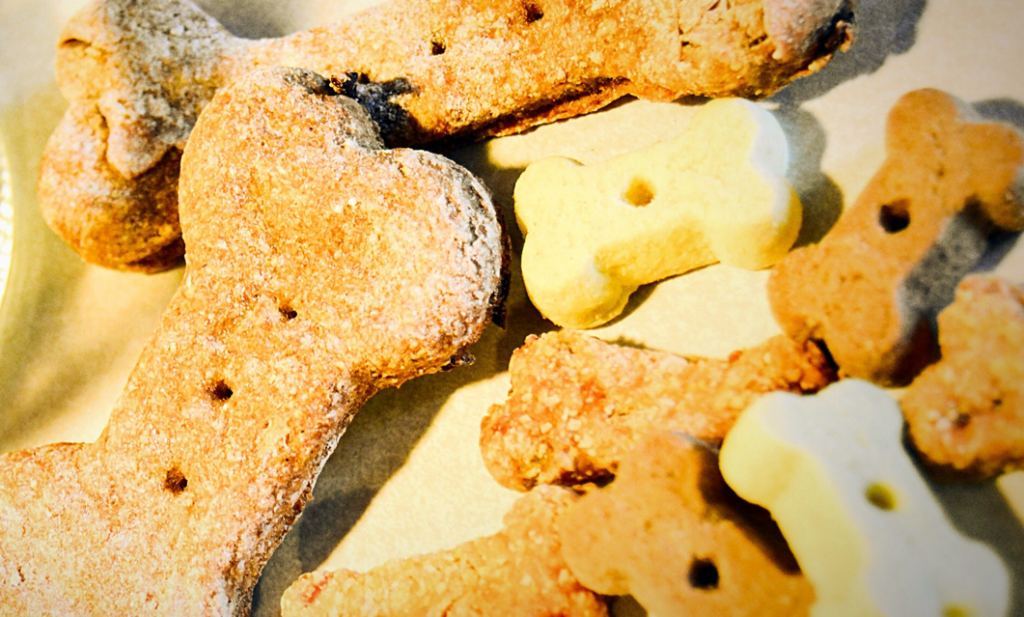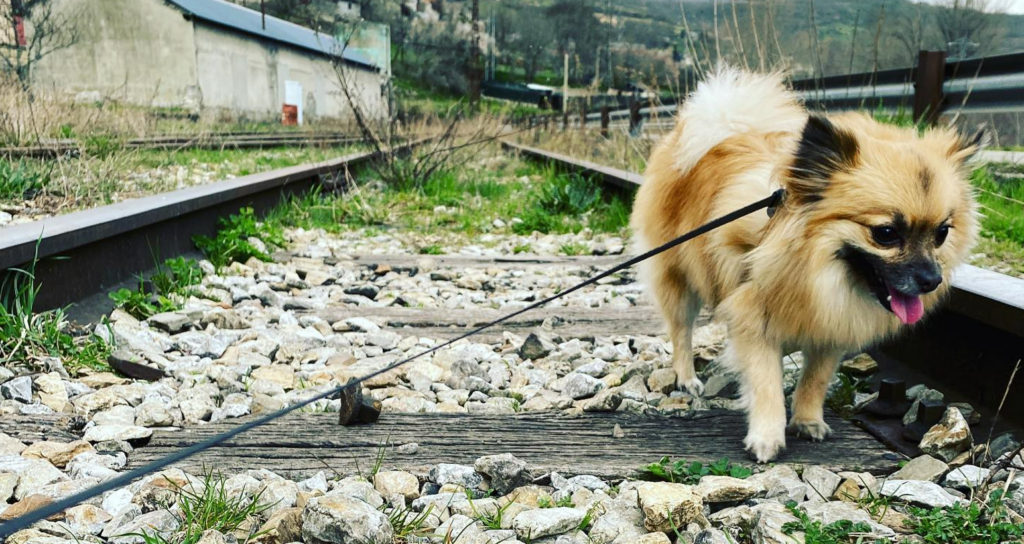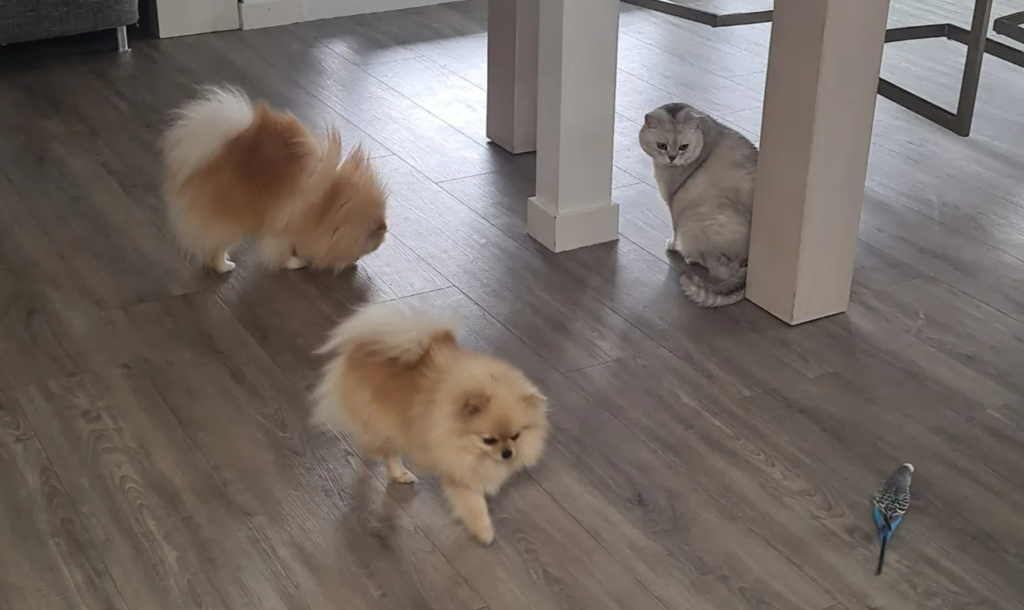It is usual for Pomeranian puppies to begin chewing things while mouthing. You need to stop your puppy’s biting behavior in the beginning, or else it will become a terrible habit. The best way to do this is by teaching them during their mouthing phase – typically between 3-5 months old.
First things first: puppies Bite. It’s part of teething and how they explore the world around them. But just because it’s natural doesn’t mean it isn’t annoying (and sometimes painful!) So what can you do about it? This post will teach you how to teach your Pomeranian puppy not to bite.
#1 Say No

Saying “ouch” might seem an obvious way to train a puppy not to bite, but it’s one of the most effective methods. When your pup bites you, immediately say “ouch” in a firm voice. It will startle them and let them know they’ve caused you pain. Afterward, provide positive reinforcement by rewarding them with treats or petting.
#2 Provide Teething Toys

One way to help prevent biting is to provide your puppy with plenty of teething toys. Chew toys will give them something else to focus their energy on instead of biting down on fingers or toes. Make sure to have different kinds of textures and flavors, so they don’t get bored. Whenever you catch your pup in the act of chewing on something he shouldn’t be, redirect him to a toy and praise him.
#3 Use a Taste Deterrent

A taste deterrent is an unpleasant-tasting spray or gel. So, it can be applied directly to skin, clothing, or furniture. It won’t take long for your pup to learn that biting is no longer fun. You should choose a safe product for your dog – some contain ingredients like hot peppers that can irritate if ingested.
Here are a few tips on using taste deterrents:
- Start with small amounts, so it doesn’t overwhelm your puppy’s sense of smell. You can always increase the amount if needed.
- Apply it generously in areas your pup likes to chew – including hands, feet, ankles, legs, armchairs/sofas, etc. Anywhere really!
#4 Reward Good Behavior

If you’re looking to train your pup not to bite, rewarding them for good behavior is a great place to start. By letting them know that they’re doing well, they’ll be more likely to continue behaving in the right way.
Eventually, with enough positive reinforcement, they’ll learn that biting isn’t acceptable and will stop doing it altogether.
#5 Redirect Your Puppies Bites

First, it’s important to nip biting in the bud early on. If you let your pup get away with biting once, they’ll think it’s okay and will continue doing it. So whenever they start getting mouthy, say “no” firmly and redirect their attention elsewhere. It could mean giving them a toy to chew on or taking them for a walk outside.
It’s also important to be consistent with your commands when training your puppy not to bite. They won’t understand why sometimes biting is allowed, but other times, it is not if you aren’t being clear with them from the beginning.
#6 Use a Water Spray Bottle

When training a puppy not to bite, a water spray bottle is one of the most effective tools you can use. By spraying your pup every time it bites, it’ll quickly learn that biting isn’t tolerated and will eventually stop doing it altogether.
Of course, like with anything else, there are some dos and don’ts when using this method. Make sure you only spray your pup when it bites – if you do it any other time, it won’t make the connection between the behavior and the punishment.
#7 Socialization

Through socialization, pups can learn how to interact with other dogs and people without biting. One of the best ways to socialize a pup is through doggy daycare or puppy playgroups. This way, they can be around different types and sizes of dogs in a safe environment, supervised by professionals.
If you don’t have access to doggy daycare, you can also take your pup on regular outings to places like pet stores, dog parks, or even just on walks around the neighborhood.
Another important aspect of socialization is getting your pup used to being handled by others. It includes everything from grooming (brushing, nail trims) to vet visits (shots, check-ups).
The more comfortable your pup is with being touched and handled gently all over their body, the less likely they will bite when someone tries doing it later on down the road.
#8 For Extreme Cases, Use a Muzzle (a Mouth Guard)

For Extreme dog biting cases, you may have to use a muzzle (mouth guard) to help prevent your dog from biting. It should be the last alternative, but a muzzle may be the best option if you’ve tried everything else and your dog is still biting excessively.
Many types of muzzles are available, so it’s important to choose one that will be comfortable for your dog while still allowing them to breathe and drink normally. You should also consider what type of activity your dog will be doing while wearing the muzzle – if they are running around or playing, make sure to get a well-ventilated muzzle, so they don’t overheat.
Conclusion
If you are having trouble with your pomeranian puppy biting, there are a few things that you can do to help train them not to bite. You can provide them with chew toys and bones so that they have something else to gnaw on besides your fingers or toes. You can also try gently scolding them when they bite and rewarding them when they don’t. With patience and consistency, eventually, your pomeranian will learn not to bite.







